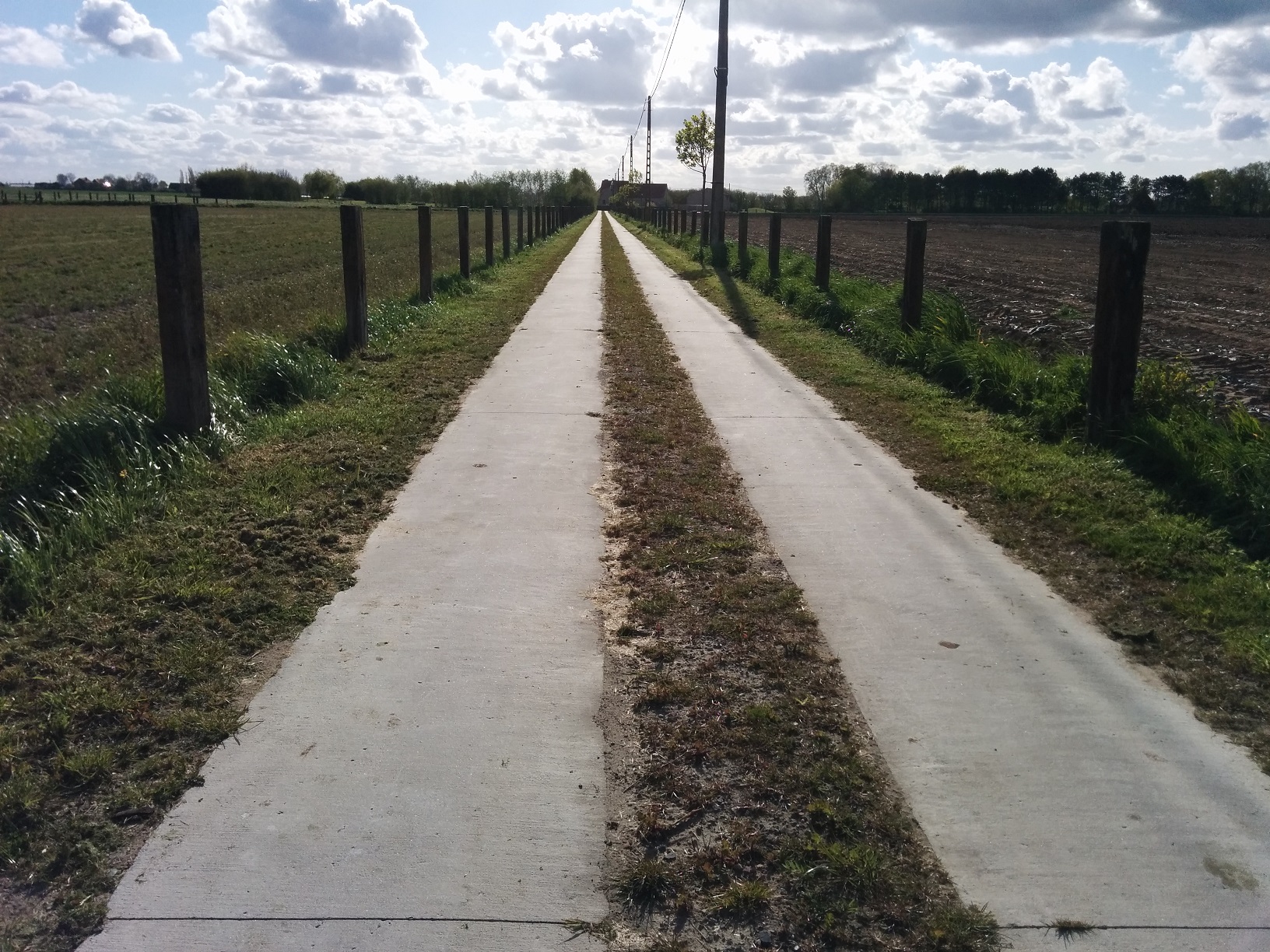Secondary roads
CONCRETE FOR ROADS AND PAVEMENTS IN TOWN AND COUNTRY
The use of concrete for roads in towns and suburbs
Another page on the website describes the use of concrete as a wearing course in motorway and trunk road construction. Many of the positive aspects of this type of construction are equally applicable to any and all smaller neighbourhood, suburban and country roads with lower traffic densities. Though the use of large paving trains may not be expected, many of the general benefits are still applicable. We might mention reduced whole life costs, all aspects of sustainability, and less disturbance to the public from road closures and repairs and maintenance
More specifically, in some design-conscious cities and local authorities, e.g. in France and Belgium, concrete roads are being used as part of urban renewal initiatives to redesign and breathe new life into town neighbourhoods.
Such initiatives make use of concrete in a variety of ways, and integrated designs have been developed in a number of areas:
- public transport infrastructures such as kerb-guided busways and combined tram/busways in CRPC.
These contribute to reduced noise and air pollution, and general public comfort – for residents, cyclists and pedestrians. - safety features like concrete roundabouts and barriers;
- focus on aesthetics, including use of patterned and coloured concrete surfaces, as well as concrete street furniture designed to positively enhance the urban environment;
The use of concrete pavements in agriculture
Uses for concrete paving are not limited to roads, but include yards and aprons, pathways, and loading bays. These various types of paved areas in farms have special requirements.
Physically, they have to stand up to heavy loads and impacts, and to abrasion from heavy farm equipment. Chemically, they have to withstand aggressive environments which can result not only from weather (particularly freeze/thaw cycles), but also from contact/storage of materials such as bulk fertilisers, silage and animal wastes.
The particular benefits of using concrete in farm environments include:
- strength as high as necessary in any circumstance;
- great durability;
- high quality finish, can be cleanable and made slip-resistant;
- can be profiled to help drainage and surface water control;
- simplified construction process.
In many cases, with a properly-prepared base there is no need for the use of mesh reinforcement and great additional benefit can be obtained from the use of fibres.


